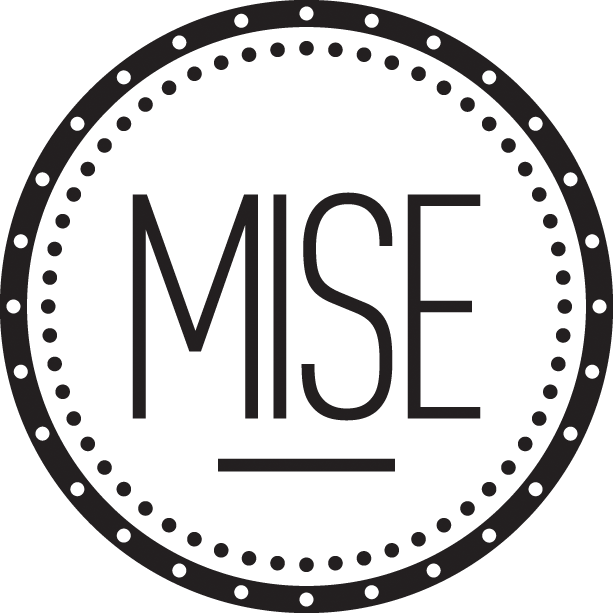rant
3.20.2015 | Issue #13
There’s this super nice guy we know.
He’s soft-spoken, talented, and has worked like a dog to become what he is now: the owner of his dream spot, cooking out his vision and paying it forward. Dude is the real deal, and genuinely deserves to be where he’s at.
So when an unruly customer situation arose one night, one you’d find anywhere with a bar really, it proceeded as usual. People drink and become stupid and ballsy, but industry folks are uniquely equipped to talk people off their perch. None of this would usually concern our friend here, until the commotion drew him out of the kitchen and he was consequently threatened with a bad Yelp review, in a maniacal à la minute blackmail, if you will. That was apparently the last straw that day. He snapped a picture of the offenders, shamed them on social media, and took a stand: #wedontnegotiatewithyelpers. Bold. Not PR-approved in the least, and very bold.
The floodgates slammed open. He became a hospitality industry hero, and in doing so, kicked off another turn on the “what-oh-what do we do with abusive yelpers?” merry go round. Cue the old-timey carousel tunes. If the avalanche of encouraging replies he received are any indication, we’d all like very much to yell "GET BENT, YELPERS" into the void, daily, but we can’t, because that would be alienating, or something. And, not all Yelpers are evil.
That being said, Yelp is fast approaching a fever pitch in doing more harm to the psyche of the entitled diner than good as an information platform. It’s a broken system, but that’s not news. What is news is that the tide is moving back in, slowly filling in the moth-eaten sieve of human interaction with positive alternatives. Choosing to ignore Yelp, and hoping they don't sabotage your business as a result, shouldn't be the only option.
Servy, a new app aimed at perhaps healing the bonds between the reviewer and the reviewed, rewards “consultants” for providing private, focused feedback to restaurants. You have to apply (Servy’s website entreats frequent diners and industry professionals) and be vetted. The only thing that makes us feel weird about it is that diners who evaluate restaurants are compensated for their time with meal discounts, anywhere from 10-50% of the bill. Would-be reviewers can see how much the restaurant is offering before they chose to give their thoughts. For restaurateurs, perhaps the payoff is worth it when your feedback is coming from a source you can trust, and not some crazy person who bathes in Velveeta and hated your carpaccio. It’s a little too early to tell if the level of a discount a restaurant can afford will skew their reviews, but the general idea is to strip away the noise and provide a focused, thoughtful critique of the experience. Here’s hoping the vetting process cuts down on the inane power-wielding.
Grate takes it a step further, and allows diners to praise (or slam) employees individually. It’s a program marketed at GMs and owners who want to know how their front of house is faring—the twist being that anyone using the app can see star ratings, but the detailed critique is for management eyes only. Again, in a Yelp-ish sort of way, it’s hard to imagine anyone being fired up enough to review their server on a regular basis unless they were stupid hot, or just really stupid. We even hit that four star review button on Uber every time, because no, it was not the best ride of our life, but it was not the worst. Plus, we know that if we hit three stars, you will bother us with little questions about why we feel this way, yada yada. We are also generally lazy, so maybe there are folks out there who truly do feel inclined to skip over the plebeian employee and tell their boss what they think of them. (For those of us who are FOH vets, the thought gives us heart palpitations and palm sweats.) The positive take is that servers with high Grate scores can use the numbers as a real-life resume, wherever they go. If that means they’re lying in bed, faces illuminated by Grate’s smiley-faced icon, wondering what Table 7 could have possibly said, is that still better than Table 7 taking to Yelp to call them a bitch to the world? Maybe.
The third and final act in this complicated opera is the part where somebody Michael Moores the big Kahuna itself and exposes its true nature. Filmmaker Kaylie Milliken’s got that covered: in her film, Billion Dollar Bully, she investigates claims of Yelp’s fucked-up business practices by tracking down those who believe their ratings are directly affected by how much they choose to advertise. Milliken is currently Kickstarting the funds needed to finish the project, but the trailer is already pretty satisfying.
People are not going to stop being assholes, and it’s not likely that Yelp is ever going to chastise them for it. As an industry that has perfected the art of smiling through the pain, how do we maintain our dignity? The answer, though still in its early stages, seems to be to flood the market with other, more thoughtful options. It’s time for a new kind of dialogue, and we’ll try anything once. —MISE HQ




